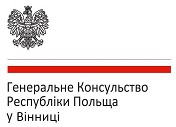Чинники та особливості політичної адаптації внутрішньо переміщених осіб в Україні
Ключові слова:
adaptation, political adaptation, internally displaced person, political behavior, political consciousnessАнотація
The article analyses the problems of political adaptation of Ukrainians. Military conflict in the East of Ukraine, annexation of the Crimea, socioeconomic crisis, distrust to power institutions have all caused a number of issues associated with the internally displaced people. Political adaptive relations in the society are viewed as processes of identification in which a person identifies him\herself with certain aims and political values.
The main problem, which internally displaced people face, include access to social services, having a constant place of residence and registering at the new place of residence. Such citizens receive help through oblast administrations and NGOs. As practice shows, the actions of the authorities regarding the problems of internally displaced people are mostly of a declarative nature. However, in addition to social and psychological, political adaptation is also important as it facilitates the integration of a society and its development.
Factors that influence the political adaptation of internally displaced people in the modern Ukrainian society have been identified. 1. The set system of relations between a person and the state is ruined due to state institution crisis and power decentralization. 2. The possibilities for political activity of individuals as well as social groups in the course of exercising their rights and satisfying their interests are widened. 3. Activation of non-governmental institutions facilitates the organized citizen participation in the political process, which facilitates the popularization of an active public opinion. 4. Peculiarities of the work of political actors, their reputation, level of responsibility and efficiency. 5. Social environment of a person, level of his/her education and political culture. 6. Mass media, which popularize certain patterns of political behavior, manipulate consciousness, impose stereotypes etc.
The author notes that internally displaced people are limited in their rights and freedoms in comparison with the rest of the population (deprivation of the right to vote, discriminative control of their place of residence, limitations as to the choice of a banking institution for receiving pensions and social support etc.). internally displaced people actually have no right to participate in solving local issues, despite the fact that this right is guaranteed by the Constitution of Ukraine. By this we mean participation in public hearings, local initiatives, general assembly of the community. In addition, internally displaced people cannot participate in establishment of bodies of population self-organization, which is one of the important forms of participation of territorial community members in solving local issues.
There is an ambiguous attitude towards the IDPs from the East of Ukraine – compassion mixed with apprehension. On the one hand, local authorities wish to provide maximum possible help for the internally displaced people. At the same time, there is a growing tension in the relations due to the increasing number of citizens who died in the zone of the conflict.
One of the key problems that hinders the adaptation of IDPs is the absence of a common national program concerning the internally displaces people as well as of a body that would be directly responsible for dealing with the issues of IDPs. Consequently, displaced people cannot trust state institutions, may perceive the political system as an enemy that does not facilitate their socialization.
The process of political adaptation of internally displaced people to the change of political space has certain peculiar features. 1. Social disorientation is caused by the deformation of the socioeconomic system of a society and is a consequence of destruction of social links, statuses and roles, the system of political norms, behavioral ideals. 2. New social identification happens through establishment of new social identities and entering the institutional structure of a society. 3. Collective political participation is carried out through citizen associations, influence on making important political decisions is made at the level of non-governmental institutions. 4. Tolerance to value foundations of a democratic society is being established.
##submission.downloads##
Опубліковано
Номер
Розділ
Ліцензія
Авторське право (c) 2018 Світлана Денисюк, Валерій Корнієнко

Ця робота ліцензується відповідно до Creative Commons Attribution-NonCommercial 4.0 International License.
Автор, який подає матеріали до друку, зберігає за собою всі авторські права та надає відповідному виданню право першої публікації, дозволяючи розповсюджувати даний матеріал із зазначенням авторства та джерела первинної публікації, а також погоджується на розміщення її електронної версії на сайті Національної бібліотеки ім. В.І. Вернадського, в міжнародних базах даних CEJSH, Index Copernicus, POL-index, Polska Bibliografia Naukowa.

